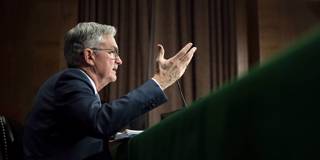By announcing its largest rate hike in two decades, the US Federal Reserve has sent precisely the signal that inflation hawks and moneylenders wanted to hear. Even better, the Fed no longer has to worry about the "transitory vs. persistent" debate, because it will get credit for a decline in inflation either way.
AUSTIN – According to economist Kenneth Rogoff of Harvard University, “a growing crescendo of commentary places the blame for the current surge in US inflation squarely on the Federal Reserve.” His reference is to a leader in The Economist, which blames America’s central bank not for the inflation itself, but for failing to raise interest rates sooner and more harshly than it finally did, on May 4.
Rogoff disagrees with this judgment, and I sympathize with his argument, up to a point. There is a distinction between price increases driven by supply disruptions, oil shocks, and war, on the one hand, and the additional heavy costs that often follow from sustained campaigns of high interest rates: bankruptcies, unemployment, and financial chaos. Being reluctant to inflict the second set of costs on top of the first set is the mark of a reasonable, non-sadistic public servant. The Economist disapproves, but Rogoff and I do not.
Beyond that, however, Rogoff’s logic is hard to follow. He seems to suggest that the Fed was intimidated by America’s oh-so-powerful progressive movement, which was in thrall to a Stony Brook University professor (and lifelong academic) named Stephanie Kelton.

AUSTIN – According to economist Kenneth Rogoff of Harvard University, “a growing crescendo of commentary places the blame for the current surge in US inflation squarely on the Federal Reserve.” His reference is to a leader in The Economist, which blames America’s central bank not for the inflation itself, but for failing to raise interest rates sooner and more harshly than it finally did, on May 4.
Rogoff disagrees with this judgment, and I sympathize with his argument, up to a point. There is a distinction between price increases driven by supply disruptions, oil shocks, and war, on the one hand, and the additional heavy costs that often follow from sustained campaigns of high interest rates: bankruptcies, unemployment, and financial chaos. Being reluctant to inflict the second set of costs on top of the first set is the mark of a reasonable, non-sadistic public servant. The Economist disapproves, but Rogoff and I do not.
Beyond that, however, Rogoff’s logic is hard to follow. He seems to suggest that the Fed was intimidated by America’s oh-so-powerful progressive movement, which was in thrall to a Stony Brook University professor (and lifelong academic) named Stephanie Kelton.